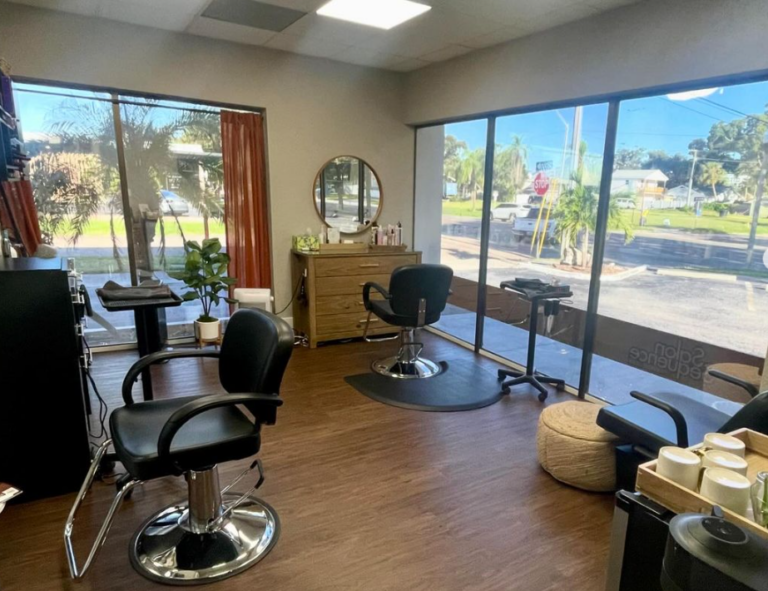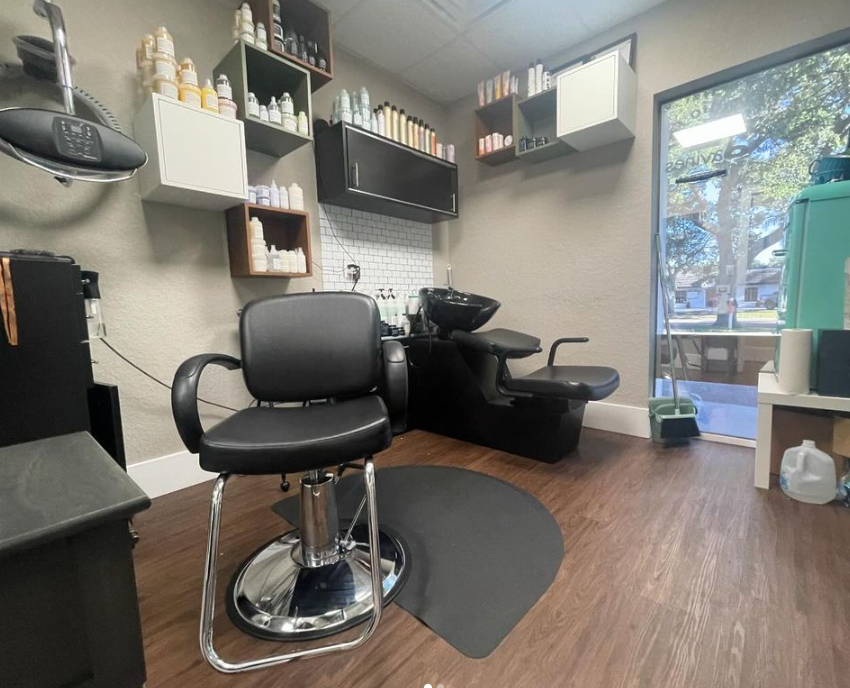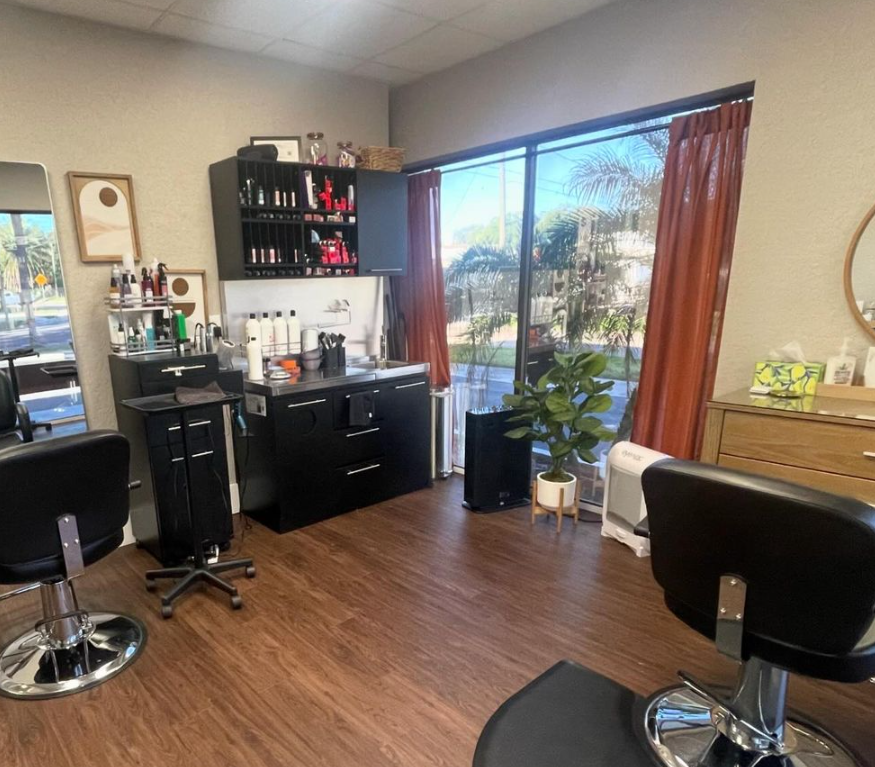
As the beauty industry continues to evolve, more professionals are shifting away from traditional commission-based or hourly pay structures to embrace the freedom and financial potential of salon suite rentals. For many stylists, spa therapists, and beauty experts, running a business from a private salon suite offers more control, independence, and higher earnings. The phrase “be your own boss” has become a reality for many in the beauty industry, but you may be wondering: what do I need to rent a salon suite?
In this article, we will explore the key steps required to successfully rent a salon suite, including how to build your business, manage your expenses, and maintain a loyal clientele. If you’re ready to take the next step in your career, here’s what you need to know to make your salon suite journey a success.
Call Us At 813-540-8808 to Find Out More!
1. Build and Secure Your Core Client List
One of the most important factors to consider when transitioning to a salon suite is having a loyal client base. Your core clients will be the foundation of your business, helping to cover your expenses and ensuring a steady flow of income. Ideally, your client list should be solid enough to keep you booked for 80% or more of your working hours.
To ensure that your clients follow you when you move to a salon suite, it’s important to establish strong relationships while still working in your current salon. Sharing your contact details, connecting with clients on social media, and keeping the lines of communication open will make the transition smoother. In most cases, about 85% of your clients will be happy to support your new venture. Not only that, but moving to a private suite can often lead to increased referrals as clients share their positive experiences with friends and family.

2. What Do I Need to Rent a Salon Suite?
Before jumping into renting a salon suite, it’s crucial to know what do I need to rent a salon suite and to be prepared for the logistics of running your own business. Here are the essential factors you should consider before signing a lease:
- Security Deposit: Most salon suite rentals require a security deposit to secure your space.
- Licensing: Ensure you have the necessary state board and business licenses to legally operate your salon suite.
- Furniture and Décor: Personalizing your suite to reflect your brand is a key part of creating a welcoming environment for clients. You’ll need to invest in items like chairs, mirrors, and styling stations.
- Marketing Materials: From business cards to a website, having professional marketing materials in place is essential for attracting new clients.
- Insurance: Liability insurance is a must for any beauty business owner. It protects you and your clients in case of accidents or mishaps.
Having these elements in place before renting a salon suite will help set you up for success and ensure a smooth transition into your new role as a business owner.
3. Setting Your Prices
Determining how much to charge for your services is one of the most important decisions you’ll make as a salon suite owner. While it may be tempting to lower your prices to retain clients, it’s essential to value your work and expertise. Charging too little can hurt your business in the long run and may lead to financial struggles.
Start by keeping your prices consistent with what you were charging as a stylist in a traditional salon. If you do need to make adjustments due to higher operating costs, consider implementing gradual price increases over time. This allows your clients to adjust without feeling overwhelmed by sudden changes.
The key is to confidently express the value you bring to your clients. Show excitement about your new venture, and most loyal clients will stick with you regardless of minor price adjustments.
4. Understanding Your Expenses
Operating a salon suite comes with several start-up and ongoing expenses that you’ll need to plan for. While renting a suite offers greater earning potential, it’s important to have a clear understanding of your financial commitments before diving in.
Here’s a breakdown of common start-up and ongoing expenses:
Start-Up Costs:
- Security Deposit: Typically required to secure your salon suite.
- Licensing Fees: Ensure all state board and business licensing is up-to-date.
- Furniture and Decor: Customize your suite to reflect your brand and style.
- Marketing Materials: This includes designing and printing business cards, and creating a website or social media profiles.
- Tools and Supplies: You’ll need to stock your salon with essential equipment like scissors, blow dryers, shampoos, and styling products.
- Insurance: Liability and renters’ insurance is crucial to protect yourself and your business.
Weekly/Monthly Expenses:
- Rent: Your salon suite’s rent will likely be your largest recurring expense.
- Laundry and Supplies: Regularly replenishing supplies like towels, cleaning products, and styling products is necessary.
- Credit Card Fees: Payment processing fees are part of running a business.
- Phone and Internet: Ensure you have reliable phone and internet services for client bookings.
Taxes: Work with an accountant to set aside money for taxes, and be prepared to make quarterly tax payments.
Steps to Secure a Salon Suite Rental Agreement
5. Balancing Income and Expenses
Now that you understand the expenses involved, the next step is to assess whether your client base and projected income are enough to cover your costs. Using a profit calculator can help you estimate your earnings and determine whether renting a salon suite is financially viable for you.
Having savings set aside for start-up costs (which can range from $1,500 to $3,000) will give you a financial cushion as you begin your business. Once your salon suite is up and running, carefully track your income and expenses to ensure your monthly earnings cover rent, supplies, and other costs.

6. Paying Yourself and Managing Finances
As a salon suite owner, managing your finances properly is critical to your long-term success. One of the first steps is to separate your personal and business finances by opening a dedicated business bank account. This not only makes bookkeeping easier, but it also helps with tax preparation.
Consider working with an accountant who can guide you through the process of paying quarterly taxes, managing business deductions, and potentially forming an LLC (Limited Liability Company). An accountant can also help you stay organized and ensure you’re meeting all financial obligations.
7. Define Your Brand
Your brand is the personality of your salon suite and will be what sets you apart from other beauty professionals. It’s essential to define who you are as a stylist and what kind of experience you want to offer your clients.
Think about what makes your services unique. Is your aesthetic modern and chic, or do you offer a cozy and luxurious environment? Whether it’s your customer service, specialty services, or a particular style, your brand should reflect your values and resonate with your target audience.
Consistency is key when it comes to branding. Your logo, color scheme, social media presence, and even the décor in your salon suite should all tell a cohesive story. When clients walk into your suite, they should immediately feel like they’re in your unique space.
8. Marketing Your Salon Suite
Marketing is a vital aspect of growing your salon suite business. Leveraging social media platforms such as Instagram, Facebook, and Pinterest can help showcase your work and attract potential clients. Consistently posting updates, sharing before-and-after photos, and engaging with your audience will help keep your name top-of-mind for clients.
Additionally, building an online presence through a website and local SEO strategies can help new clients find you. Referrals and online reviews are also powerful marketing tools. Consider offering a referral discount for clients who bring in new customers or create a loyalty program to reward repeat visits.
Take the Leap with Confidence
Renting a salon suite offers beauty professionals the freedom to take control of their careers, build a loyal client base, and create a personalized environment for their services. Knowing what do I need to rent a salon suite and carefully planning for the transition will help ensure your success. From managing your expenses to defining your brand, each step of the process is an opportunity to build the business of your dreams.
With proper preparation, a strong client base, and the right mindset, you can thrive in your salon suite and enjoy the benefits of being your own boss. Embrace the journey and turn your vision into reality!
